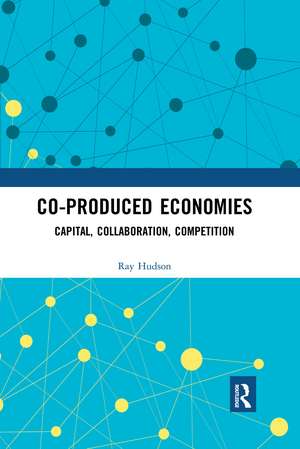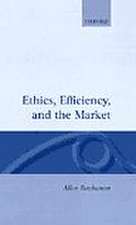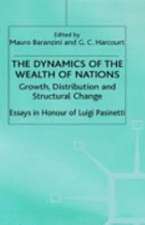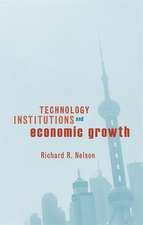Co-produced Economies: Capital, Collaboration, Competition
Autor Ray Hudsonen Limba Engleză Paperback – 30 sep 2020
This book explores the answers to these questions, proposing that the contemporary capitalist economy is best understood as a complex socio-spatial system of co-production involving relations between people, things and non-human entities. It is argued that these people typically have conflicting and competitive interests yet can come together to resolve their differences or find ways of regulating their conflicting interests. National states continue to have a critical role in establishing these systems of regulation. At the same time, many companies draw on the knowledge of their customers while others enrol animals, insects and plants as co-producers. As a result, the improbable processes of commodity production and capital accumulation continue more or less routinely; with problems and occasional crises overcome in a variety of ways.
Co-produced Economies will be of interest to students of economic geography, political economy and economic development, and more generally to social scientists interested in issues of the causes and consequences of economic change. It will also be of relevance to policy makers seeking to develop economic policies in the increasingly volatile global economy and in the context of growing environmental concerns.
| Toate formatele și edițiile | Preț | Express |
|---|---|---|
| Paperback (1) | 260.54 lei 43-57 zile | |
| Taylor & Francis – 30 sep 2020 | 260.54 lei 43-57 zile | |
| Hardback (1) | 1002.63 lei 43-57 zile | |
| Taylor & Francis – 21 feb 2019 | 1002.63 lei 43-57 zile |
Preț: 260.54 lei
Preț vechi: 311.70 lei
-16% Nou
Puncte Express: 391
Preț estimativ în valută:
49.86€ • 52.18$ • 41.49£
49.86€ • 52.18$ • 41.49£
Carte tipărită la comandă
Livrare economică 31 martie-14 aprilie
Preluare comenzi: 021 569.72.76
Specificații
ISBN-13: 9780367661267
ISBN-10: 0367661268
Pagini: 258
Dimensiuni: 156 x 234 mm
Greutate: 0.48 kg
Ediția:1
Editura: Taylor & Francis
Colecția Routledge
Locul publicării:Oxford, United Kingdom
ISBN-10: 0367661268
Pagini: 258
Dimensiuni: 156 x 234 mm
Greutate: 0.48 kg
Ediția:1
Editura: Taylor & Francis
Colecția Routledge
Locul publicării:Oxford, United Kingdom
Public țintă
Postgraduate and UndergraduateCuprins
1. Setting the scene: conceptualising capitalist economies as co-produced. 2. Making co-production possible: from state regulation to informal institutions, conventions and habits. 3. Enabling co-production: managing relations between capital and labour. 4. Competition among co-producing firms: varying forms of competitive strategy. 5. Collaboration among firms: collaborating and co-producing with some in order to compete with others. 6. People collaborating and competing for waged work in the co-producing economy. 7. Engaging consumers in the co-production of commodities. 8. Capital and nature: from relations of domination to active co-production. 9. Co-producing sustainable economies or the end of capitalism as we knew it?
Notă biografică
Ray Hudson is a political-economic geographer at Durham University, UK, where he has been a Professor since 1990. He is a Fellow of the British Academy, of the Academy of the Social Sciences, the Royal Geographical Society and the Regional Studies Association as well as a member of Academia Europaea.
Recenzii
"This book makes a new and important contribution to our theoretical understanding of social economy. Researchers, educators and policy makers committed to building co-operative, mutual and social enterprises will find this a valuable addition to their library.", Dr Rory Ridley-Duff, Reader in Co-operative and Social Enterprise, Sheffield Hallam University
Descriere
Recently, most capitalist economies in the Global North have experienced a decline in manufacturing and an increase in the service sector. Meanwhile, there has been substantial manufacturing growth in the Global South. This book explores why these changes have occurred and the best way to understand how the contemporary economy functions.











